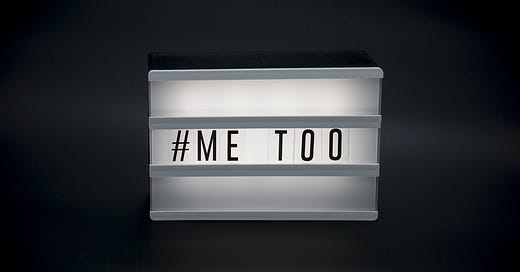The Men of the #MeToo Generation
Young men face an increasingly complicated and uncertain social landscape
In a change of pace, I want to share some findings from a series of in-depth interviews we conducted among 21 young adults on the subjects of dating, gender equality, and the #MeToo movement. This new research is part of a larger collaboration with Ipsos on dating and relationships. Our colleague at Ipsos, Mallory Newall, did a tremendous job conducting…
Keep reading with a 7-day free trial
Subscribe to American Storylines to keep reading this post and get 7 days of free access to the full post archives.




